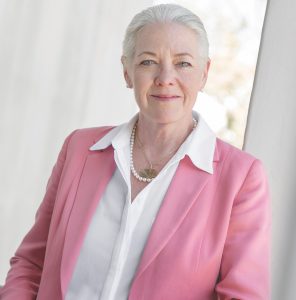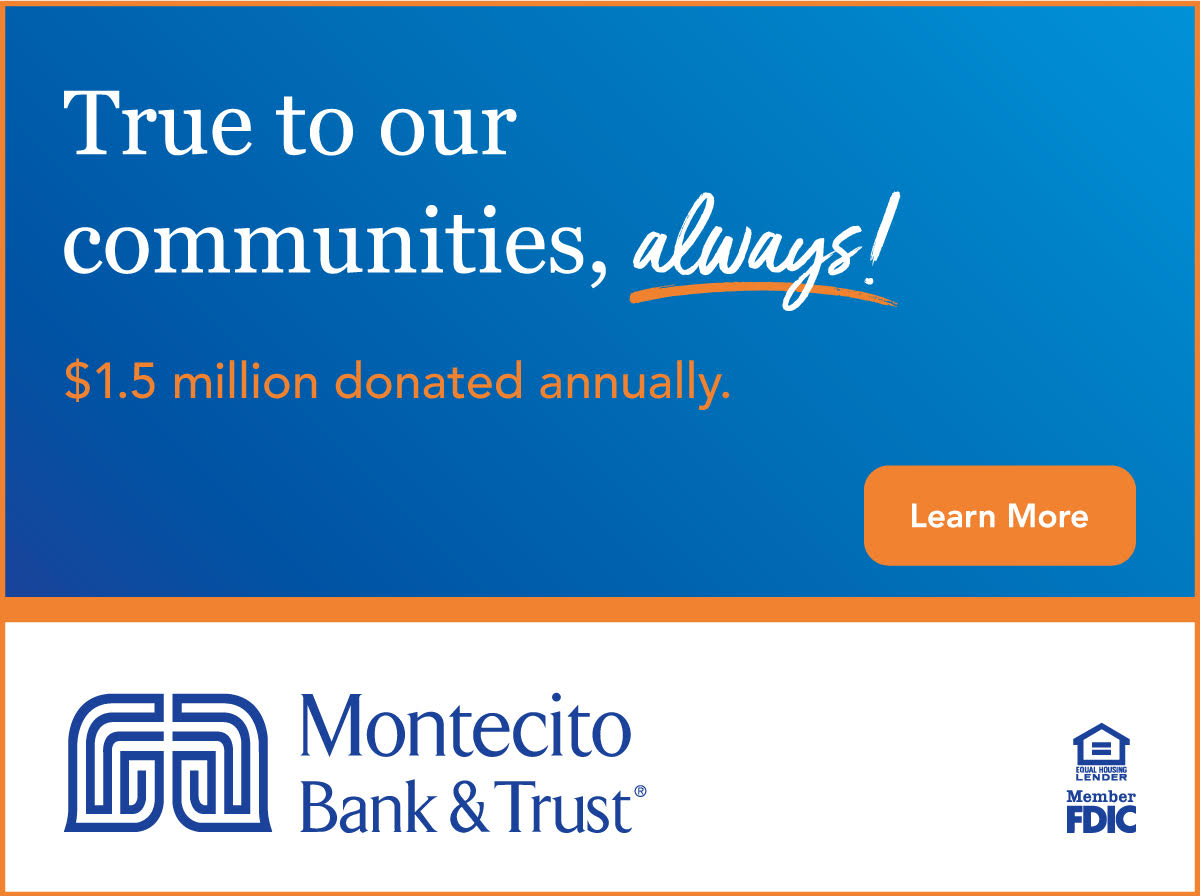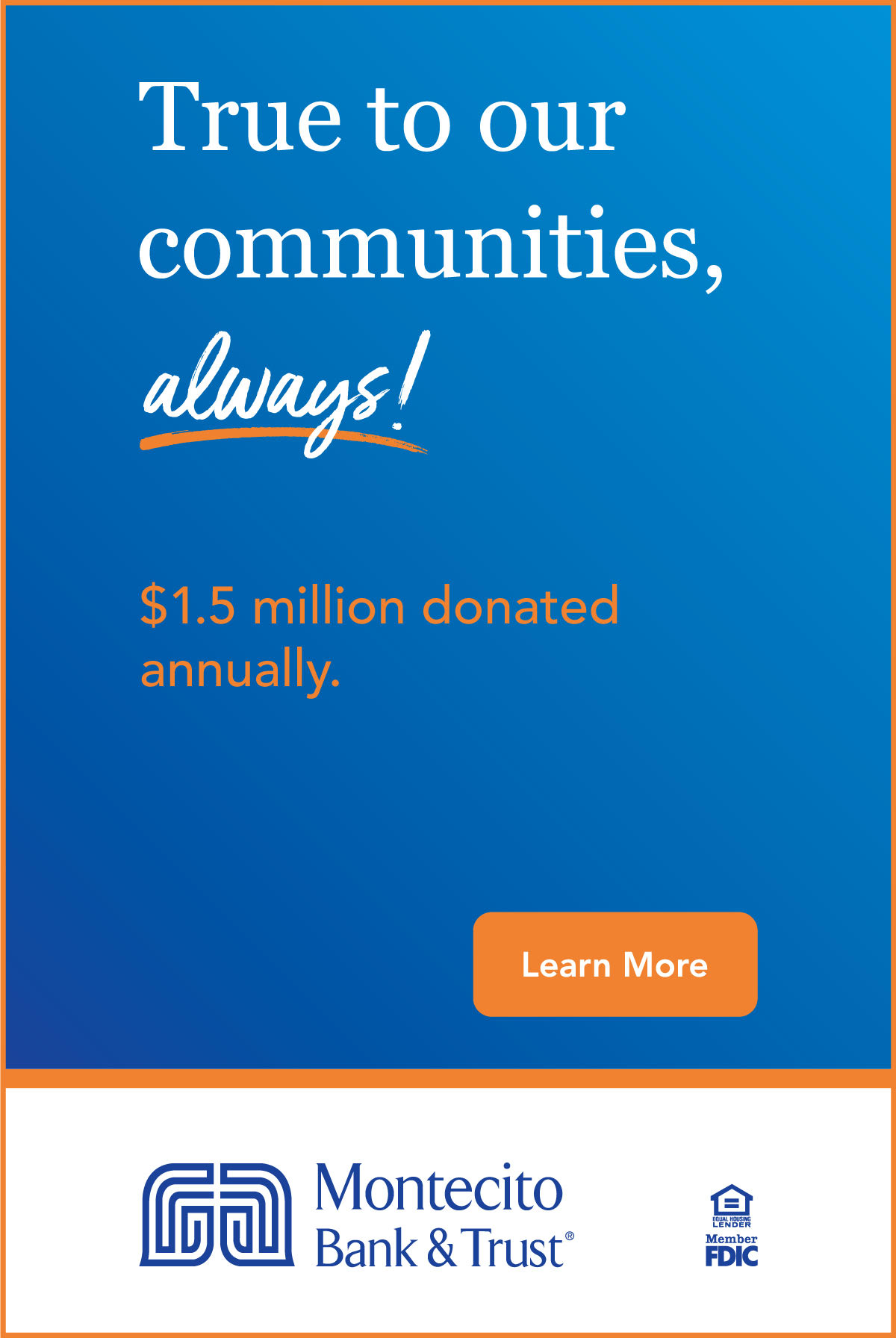Stacy Pulice: Cultivating Generosity: Regenerative Mindsets and the Joy of Giving
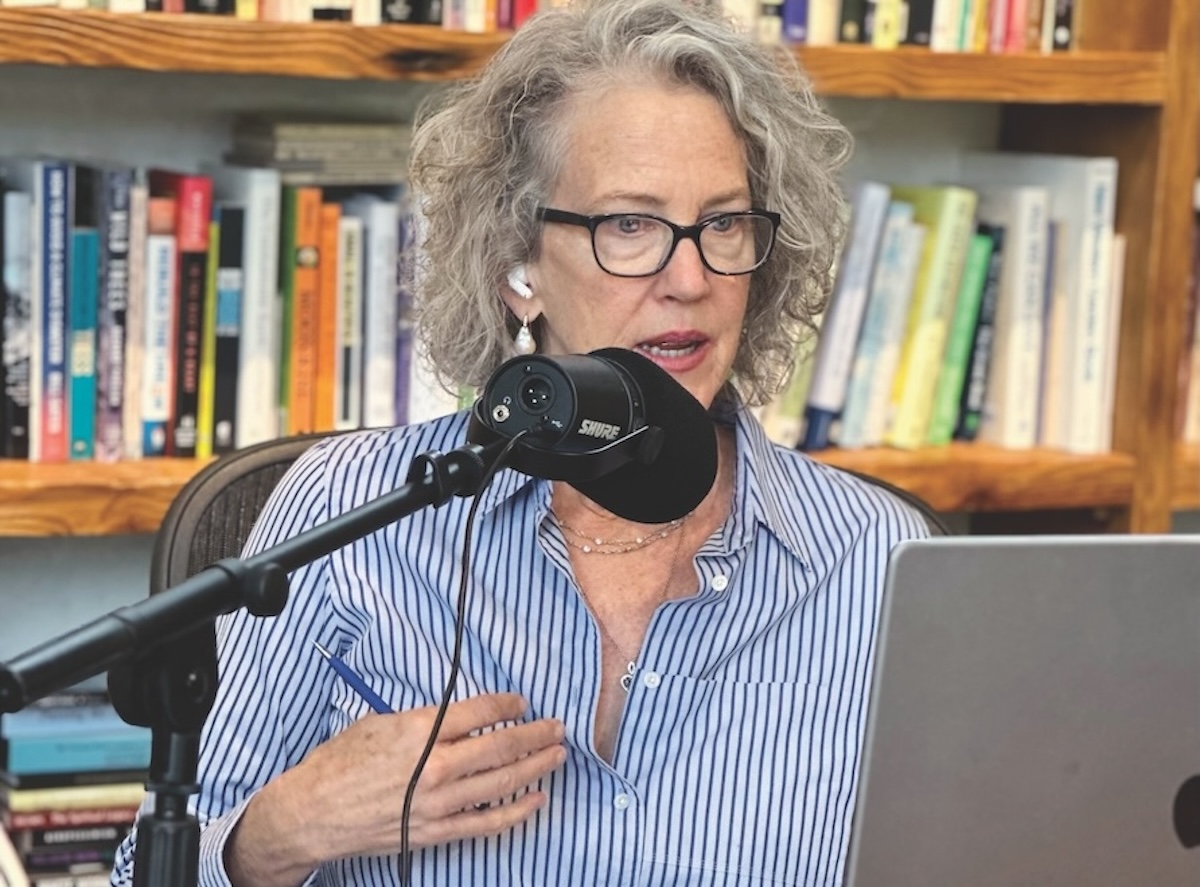
It’s no surprise that longtime Santa Barbara resident, Stacy Pulice, whose monikers aptly include Ph.D psychologist, author, regenerative farmer, educator, podcaster, and philanthropist, describes her approach to philanthropy as “holistic.” A self-described nature enthusiast and student of Eastern philosophy, Pulice brings to her life’s work a unique blend of academic rigor, spiritual insight, and practical experience.
We wanted to talk with Pulice about her philanthropy because her giving extends beyond the traditional writing of checks. Pulice’s journey, which took an unexpected turn following a near-death experience, led her to healing through nature and a deepened commitment to regenerative practices. These include self-funded research, creating innovative programs like her regenerative farming internship initiative for university students and hosting a podcast called “Regenerative Mindset” in which Pulice explores the interconnectedness of human well-being, environmental sustainability, and social impact. Through education, one of Pulice’s top philanthropic and personal priorities, she seeks to inspire others to embrace a regenerative mindset and contribute positively to the world by cultivating, creating, and manifesting a living, thriving future.
Q: Can you tell us about your journey that has led you to where you are today in your philanthropic and other work?
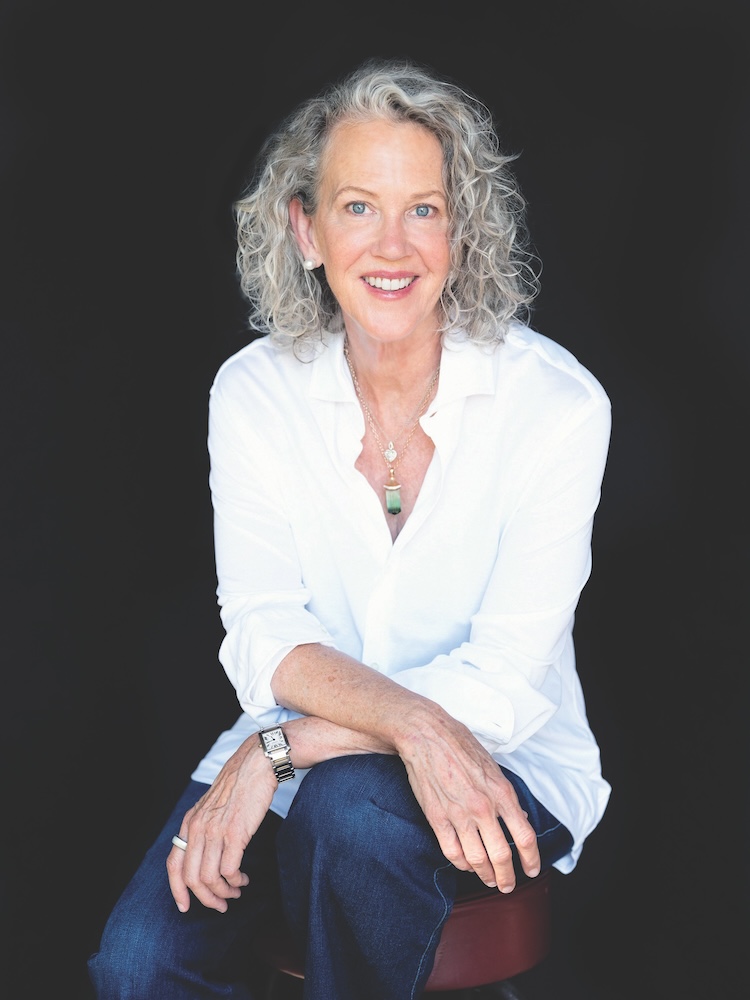
Stacy Pulice: My journey really began with my passion for psychology. I was drawn to studying student well-being in schools, focusing on factors that lead to thriving learning environments, increased self-esteem, and self-motivation in public school students. This research naturally led me to study teacher well-being, and later, even admin well-being in the Santa Barbara School District.
What I discovered was fascinating because these educational environments are like ecosystems. If you have the right support mechanisms in place, everyone thrives, and it impacts the whole community. This realization about sustainable education methodology and the importance of relationships between teachers, students, and administrators was a pivotal moment for me.
Later, we moved to our ranch in Goleta, and I had a near-death experience that profoundly changed my perspective. As I healed in nature, I began to see parallels between the ecosystems in schools and the natural world. This experience led me to dive deeply into learning about regenerative farming practices and permaculture.
I spent about three years educating myself intensively on these subjects, taking seminars, classes, reading books, and talking to experts. It was as comprehensive as my Ph.D studies. This process forced me to align my values with the land I live on, bridging my earlier work in human ecosystems with the natural world.
Q: You’re known in the community as a philanthropist. Why has giving been important to you?
A: I fundamentally believe that life isn’t fair, and I recognize that I’m fortunate. My values tell me it’s crucial to share that good fortune. But there’s more to it than that. Generosity, kindness, and love – when we practice these things, they actually have to go through our own system. So when I’m being generous or kind, when I’m uplifting someone else, I am uplifted too.
There’s a selfish aspect to it, in a way. It’s called the “giving paradox” in my brain. People often think that when they give, they’re losing something, but that’s not true. Giving is a source of joy and fulfillment for me.
Q: You launched a podcast a year ago. What did you hope to accomplish, and who do you hope hears it?
A: The podcast grew out of my earlier experiences teaching a class on climate change and contemplative practice during the pandemic, which evolved into broader teachings on philosophy, psychology, and environmentalism. My son, Will, suggested that I share the conversations I was having with amazing people through a podcast format.
I started by interviewing people I knew who were making positive impacts in the world, particularly in areas related to sustainable and regenerative practices. As I expanded to include a greater variety of guests, I realized that what I was really trying to convey was about mindset – how we see the world and how we practice starts inside of ourselves.
That’s why I changed the name to “Regenerative Mindset.” I want to put out there that we can all shift our mindset, and everything is possible when we do. At first, I was aiming to reach people interested in regenerative farming or land practices. Now, I’m hoping to reach anyone who wants to think about things a little differently.
Ideally, I’d love to reach young people who often understand these messages intuitively, as well as those who have the power to make significant changes. I want to impact those who are sensing a paradigm shift and realize that everything they do, matters.
Q: Can you elaborate on how you’ve broadened your view from regenerative agriculture to a regenerative mindset?
A: Yes, this evolution came as I spoke with a greater variety of guests and I realized that it all starts with our own way of seeing the world – our lens, if you will. This is a key concept in Buddhism, which I’ve studied for 35 years. I decided to change the name to “Regenerative Mindset” because it better reflects the idea that everything we do can be done with an eye toward being in alignment with nature’s cycles and contributing a positive life force. It’s about trying to change and rebalance things for the better of all.
This shift in focus allows me to reach people who want to think about things differently, not just those interested in regenerative farming. I want to help people understand that it’s all connected – our approach to education, farming, business, everything – and it’s all linked to being in alignment with nature’s cycles.
When we go against nature’s ways, we’re cultivating a slow death. When we go with it, we’re cultivating more life and thriving, whether it’s in education with students or in growing plants. I feel like I see the keys to the kingdom, and I want to share that understanding.
Q: What do you consider your “secret sauce” in all of this work?
A: What comes to mind first is the magic and enchantment I find in nature. This is more than apparent to me – I experience it deeply. Many people experience healing when they’re in a natural environment, but they might not know what to call it. In my personal life, it’s very explicit, and I feel challenged to make it more explicit in my public work.
This perspective borders on spirituality and aligns with philosophies like Buddhism or Taoism, which I’ve studied for 35 years. My father was a nature lover who taught me to sail and took me camping, always saying that nature was his church. That’s true for me as well.
Aligned with this is the way I’ve explicitly worked on developing my intuition. I believe our public education system often chases out subjective, intuitive knowing in favor of facts and external knowledge. While I love science, logic, and data, I truly believe that a well-developed sense of intuition and a connection with nature is essential to our health and well-being.
Q: You’ve talked about giving back because you feel lucky. Do you think there is value in giving for those at every financial level?
A: Absolutely. I grew up middle class, and I’ve always felt fortunate – it’s not about being rich, it’s about feeling grateful for what you have. Even as a young adult in L.A., when money was tight, I still found ways to give. It’s not about the size of your bank account at all.
Giving can take many forms – it can be about service, offering opportunities, or sharing spaces. I believe it’s an essential part of being a fully balanced human being. Engaging in acts of giving, whether through volunteering or helping others, can be a cure for many psychological ills like depression or loneliness.
It’s not about how much you can give financially – it’s about the act of giving itself, of connecting with others and contributing to something larger than yourself. That’s what brings joy and fulfillment, regardless of your age or financial situation.
Q: Can you talk about the different kinds of giving you do?
A: I engage in a variety of giving. I fund large and small nonprofits, always doing my homework to understand the efficiency of their model and how much actually goes to helping the people they aim to serve. I would have to say that education is one of the overarching reasons for my philanthropy and why I began my podcast. And my giving goes beyond traditional donations. On our ranch, we do a lot of “testing and learning” – trying out regenerative practices that can be shared and scaled with others. I consider this part of my philanthropy, even if it doesn’t come with a tax write-off.
I’ve also self-funded research projects that help other groups of people. For example, we have a full intern program where we bring students from the University of California, Santa Barbara onto our property. We provide them with tools, land, seeds, and expert guidance. It’s super empowering for them, and they get to try new things.
I also consider my podcast a form of giving back. I fund it myself as a way to share knowledge and inspire others. To me, philanthropy is about being creative in how you give – it’s not just about writing checks, but about using your resources, whatever they may be, to make a positive impact.
Q: What advice would you give to nonprofit organizations trying to raise funds and get on donors’ radars?
A: First and foremost, awareness is key. I can only give to the things I’m aware of. That’s why initiatives like The Giving List books are so valuable – they put these organizations in front of people so they can learn about them.
Relationships are also crucial. In my experience, the best donations come through relationships. Creating a sense of belonging to something that feels good, as well as cultivating a community of donors that you regularly gather, can be a winning combination. It’s about creating an environment where people can have fun together while supporting a good cause.
Telling your story effectively is important too. Look at someone like Linda Cole (African Women Rising) – she knows how to have lunch with people, tell a compelling story, and build support gradually through these one-on-one connections.
However, I do want to note that the competitive nature of fundraising can be a pain point. Just like in capitalism, there’s often pressure for constant growth in the nonprofit world. I believe our growth needs to be appropriate and not pursued for its own sake. There’s a risk of losing your message in the pursuit of becoming a huge organization.
